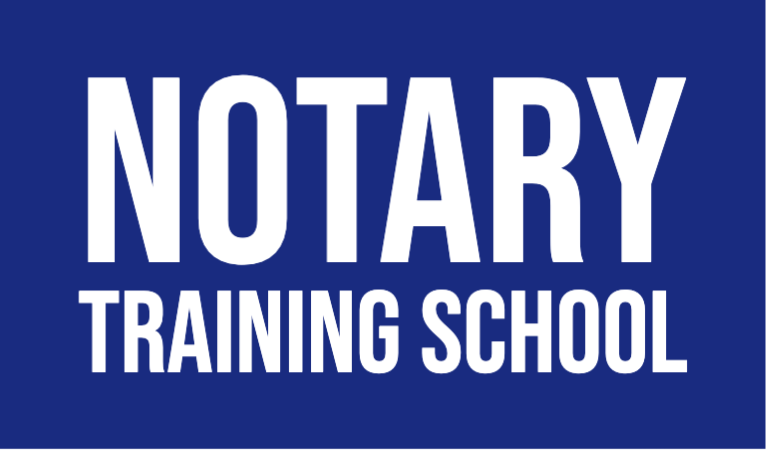Exploring the Various Types of Notary Publics and Their Roles

A notary public plays a crucial role in the legal and financial world, ensuring the authenticity and integrity of various documents. Notaries serve as impartial witnesses to the signing of important papers, helping to prevent fraud and verify the identity of signers. However, not all notaries are the same. There are different types of notary publics, each with unique roles and responsibilities. In this article, we will explore the various types of notary publics, their specific functions, and how to choose the right one for your needs.
Table of Contents
General Notary Public

Definition and Role
A general notary public is the most common type of notary. Their primary responsibility is to verify the identity of individuals signing documents and to witness the signing process. General notaries handle a wide range of documents, including affidavits, deeds, contracts, and powers of attorney. They ensure that the signers are who they claim to be and that they are signing willingly and under their own free will.
Typical Duties and Responsibilities
The duties of a general notary public are varied and essential in numerous legal and financial transactions. They include administering oaths and affirmations, taking affidavits and statutory declarations, witnessing and authenticating the execution of certain documents, and taking acknowledgments of deeds and other conveyances. Additionally, general notaries may certify copies of documents and provide other services depending on the jurisdiction’s regulations.
Becoming a General Notary Public
To become a general notary public, individuals must meet certain requirements, which vary by state. Generally, they must be at least 18 years old, a legal resident of the state in which they wish to practice, and have no felony convictions. The process typically involves completing an application, passing a background check, and taking an oath of office. In some states, aspiring notaries must also complete a notary training course and pass an exam. These requirements ensure that notaries are qualified to perform their duties competently and ethically.
General notaries are essential for many everyday transactions. Whether you’re buying a house, creating a will, or granting someone power of attorney, a general notary public ensures that the process is legally sound and that your documents are properly executed.
Mobile Notary Public

Definition and Role
A mobile notary public offers the same services as a general notary but with added convenience. Mobile notaries travel to their clients’ locations to perform notarial acts, making it easier for individuals with busy schedules or limited mobility to get their documents notarized. This service is especially beneficial for elderly clients, those with disabilities, or anyone who prefers the convenience of having a notary come to them.
Services Offered
Mobile notaries often handle real estate transactions, loan signings, and other time-sensitive documents. They can meet clients at their homes, offices, hospitals, or any other location. This flexibility makes mobile notaries a valuable resource for those who need notarization services outside of regular business hours or in remote areas. They are particularly useful for notarizing documents for hospital patients, nursing home residents, and others who may have difficulty traveling.
Benefits of Using a Mobile Notary
The primary benefit of using a mobile notary is convenience. Clients do not need to take time off work or travel to a notary’s office. Instead, the notary comes to them, often accommodating tight schedules and urgent needs. This service can be invaluable in situations where documents need to be notarized quickly, such as during real estate closings or legal proceedings.
Becoming a Mobile Notary Public
Becoming a mobile notary involves the same steps as becoming a general notary, with the addition of reliable transportation and a willingness to travel. Many mobile notaries charge additional fees for their travel time and convenience, which can vary depending on the distance and time required. These fees are usually justified by the convenience and flexibility offered by mobile notaries, making their services highly sought after.
Notary Signing Agent

Definition and Role
A notary signing agent (NSA) is a specialized type of notary public who handles loan document signings. NSAs are essential in the real estate industry, where they ensure that mortgage documents are properly executed and legally binding. Their role involves guiding borrowers through the signing process, explaining the documents, and ensuring that all required signatures and initialings are completed.
Specific Functions in Loan Signings
Notary signing agents play a critical role in real estate transactions. They meet with borrowers to facilitate the signing of loan documents, ensuring that each document is properly signed, dated, and notarized. NSAs must be familiar with a variety of loan documents, including promissory notes, deeds of trust, and disclosure forms. They also ensure that the borrowers understand the documents they are signing, providing clarity and preventing misunderstandings.
Certification and Training
Becoming a notary signing agent requires additional training and certification beyond that of a general notary. NSAs must have a thorough understanding of loan documents and the mortgage process. They often take specialized courses and pass certification exams to demonstrate their expertise. These courses cover topics such as document preparation, the closing process, and legal and ethical considerations. Certification is typically provided by professional organizations such as the Notary Training School, which also offers resources and support for NSAs.
Notary signing agents play a critical role in the smooth and efficient closing of real estate transactions. Their expertise ensures that all documents are correctly signed and notarized, reducing the risk of errors and delays. For those involved in buying or refinancing a home, an NSA provides invaluable support and guidance throughout the process.
Electronic Notary Public

Definition and Role
An electronic notary public, or e-notary, performs notarizations electronically rather than on paper. This modern approach to notarization is becoming increasingly popular as technology advances and more transactions are conducted online. E-notaries use digital signatures and electronic seals to notarize documents, which are then stored and transmitted electronically.
Rise of Electronic Notarization
The rise of electronic notarization offers several advantages, including increased efficiency, reduced paperwork, and enhanced security. E-notarizations are especially useful for businesses and individuals who need to notarize large volumes of documents quickly and securely. The convenience of electronic notarization is particularly evident in industries such as real estate, finance, and legal services, where document processing can be time-consuming and complex.
Legal Status and Adoption
The legal status of electronic notarization varies by state. Some states have fully embraced e-notarization, while others have implemented pilot programs or limited use. The Uniform Electronic Transactions Act (UETA) and the Electronic Signatures in Global and National Commerce Act (ESIGN Act) provide a legal framework for electronic signatures and notarizations at the federal level, but individual states may have additional regulations and requirements.
Technology and Tools
To become an electronic notary, individuals must first be commissioned as general notaries. They then complete additional training on the use of electronic notarization technology and comply with state-specific requirements. E-notaries must also use approved software and tools to ensure the security and integrity of the notarization process. These tools often include secure digital signature platforms, encryption technologies, and audit trails to provide a comprehensive record of the notarization.
Electronic notarization is transforming the way notarial acts are performed, offering a convenient and secure alternative to traditional paper-based methods. As more states adopt e-notarization laws, the demand for electronic notaries is expected to grow.
Remote Online Notary (RON)

Definition and Role
A remote online notary (RON) performs notarizations over the internet using audio-visual technology. RONs allow signers to appear before them remotely, eliminating the need for in-person meetings. This type of notarization is particularly useful for individuals who are unable to travel or who live in different states or countries.
How Remote Online Notarization Works
Remote online notarization involves several steps to ensure security and authenticity. Signers must verify their identity using advanced methods such as knowledge-based authentication (KBA) and credential analysis. The entire notarization session is recorded, providing a secure and auditable record of the transaction. This process ensures that the notarization is as reliable as an in-person meeting.
Legal Status and Adoption
Currently, remote online notarization is legal in several states, with more states expected to adopt RON laws in the coming years. States that have implemented RON legislation include Virginia, Texas, Florida, and Nevada, among others. The trend towards remote notarization has been accelerated by the COVID-19 pandemic, which highlighted the need for secure, remote solutions for document notarization.
Becoming a Remote Online Notary
To become a remote online notary, individuals must meet the requirements for general notarization, complete RON-specific training, and use approved technology platforms. These platforms provide the necessary tools for conducting secure online notarizations, including video conferencing software, digital signature capabilities, and secure document storage. RON training often covers topics such as identity verification, cybersecurity, and compliance with state-specific regulations.
Remote online notarization offers a convenient and secure way to notarize documents, particularly in an increasingly digital world. As technology continues to evolve, RON is poised to become a standard practice for notarizations.
Specialized Notaries

Types of Specialized Notaries
In addition to general, mobile, and electronic notaries, there are several specialized types of notaries who serve specific needs. These include hospital notaries, immigration notaries, and military notaries.
Hospital Notaries
Hospital notaries provide notarial services to patients and staff within healthcare facilities. They often handle medical documents, powers of attorney, and advance directives. Their role is crucial in ensuring that patients’ legal and healthcare decisions are properly documented and witnessed. Hospital notaries must be sensitive to the needs of patients and their families, providing a valuable service during often difficult times.
Immigration Notaries
Immigration notaries assist with immigration-related documents, such as affidavits of support and visa applications.
They must have a thorough understanding of immigration laws and regulations to ensure that documents are correctly executed. Immigration notaries play a vital role in helping individuals navigate the complex immigration process, providing support and guidance to ensure that documents meet legal requirements.
Military Notaries
Military notaries are authorized to provide notarial services to members of the armed forces and their families. They often handle documents related to deployment, powers of attorney, and other military-specific needs. Military notaries must be familiar with the unique legal requirements of military life and provide services that support the needs of service members and their families.
Responsibilities and Requirements
Each specialized notary role requires additional knowledge and expertise to handle the unique requirements of their clients. These notaries play a vital role in ensuring that important documents are properly notarized and legally binding. Specialized notaries often undergo additional training and certification to ensure they are equipped to meet the specific needs of their clients.
Situations Requiring Specialized Notaries
Specialized notaries are essential in various situations where general notarial services may not suffice. For example, a hospital notary is indispensable when a patient needs to sign a power of attorney or advance directive but cannot leave the healthcare facility. An immigration notary is crucial for individuals navigating the immigration process, ensuring that their documents are properly executed and meet legal requirements. Military notaries provide essential services for service members who may need to execute documents related to deployment or other military-specific needs.
How to Choose the Right Type of Notary

Determining Your Needs
Choosing the right type of notary public depends on the specific needs of the individual or business. Factors to consider include the type of document, the location of the signer, and the convenience of the service. Understanding these factors can help ensure that the notarization process goes smoothly and that all legal requirements are met.
Factors to Consider
For general notarizations, a general notary public is typically sufficient. However, for more specialized needs, such as loan signings or electronic documents, a notary signing agent or electronic notary may be required. Mobile notaries offer added convenience for those who cannot travel, while remote online notaries provide a secure option for remote transactions. Consider the type of document being notarized, the location of the signer, and any specific requirements that may necessitate a specialized notary.
Tips for Choosing the Right Notary
- Identify the Document Type: Determine what type of document you need notarized and if it requires any special handling.
- Consider Location and Convenience: If you cannot travel, a mobile or remote online notary might be the best option.
- Check Credentials and Expertise: Ensure the notary has the necessary credentials and expertise for your specific needs. For example, a notary signing agent should be used for loan documents.
- Understand Legal Requirements: Be aware of any state-specific legal requirements that may apply to your notarization.
Examples of Different Scenarios
- Real Estate Transactions: Use a notary signing agent for mortgage documents to ensure proper execution and understanding.
- Medical Documents: A hospital notary can notarize advance directives or medical powers of attorney for patients in healthcare facilities.
- Remote Transactions: For signers in different locations, a remote online notary provides a secure and convenient option.
Conclusion
Understanding the different types of notary publics and their roles is essential for ensuring that documents are properly notarized and legally binding. Whether you need a general notary, a mobile notary, a notary signing agent, an electronic notary, or a specialized notary, each type offers unique services and expertise to meet your needs. By choosing the right type of notary public, you can ensure that your documents are handled with professionalism and integrity, providing peace of mind and legal protection.
In summary, notary publics play a vital role in various legal and financial transactions, offering services that are indispensable for ensuring the authenticity and integrity of documents. From general notaries to specialized roles like notary signing agents and remote online notaries, each type of notary public provides unique benefits and expertise. Understanding these different types and their roles can help you make informed decisions when seeking notarial services, ensuring that your documents are properly executed and legally binding.
By following the tips provided and considering the specific needs of your transaction, you can choose the right type of notary public for your situation. Whether for everyday notarizations or specialized services, the right notary can make all the difference in ensuring that your documents are handled correctly and efficiently.






Responses